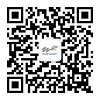8 Tips for Team Survival in the New Economy

With shifting consumer demands, disruptive new technologies, and unpredictable financial dynamics, today's organizations have to be more agile and work faster to adapt if they want to thrive in the new economy. While senior leaders need to always be looking forward, anticipating trends, and making decisions just ahead of the curve, the unit of the organization responsible for flawlessly executing these complex, ever-changing strategies is the team. As a result of volatile changes brought on by market forces like acquisitions, new product launches, and reorganizations, teams are constantly being formed, reconfigured, eliminated, and reformed as work flow and projects evolve in new ways. With these rapid changes, the need for strong and resilient teams is greater than ever before.
Organizational change—even positive change like growth through acquisition—can be chaotic. Unexpected challenges cripple a team's productivity if new members are not effectively assimilated and current members don't adapt. In one such case, at a Fortune 100 company, Wilson Learning identified these risk factors and designed performance improvement learning solutions to mitigate damage. We also helped the organization create a list of survival tips to strengthen their teams and make them more nimble at adapting and flexing through change and executing new strategies with new team members.
The following tips helped teams in this company rise above merely reacting to change and instead move forward purposefully, proactively gaining a competitive advantage by being more agile and versatile than their competitors.
TIP 1: BUILD TRUST AND RAPPORT
Team performance depends on a foundation of trust. Without it, team members are reluctant to share information or offer support, and may hesitate to rely on each other to keep commitments and follow through on tasks. Lack of trust can certainly hinder forward momentum and the eventual success of a project.
To build a sense of trust, teams need opportunities to develop social rapport, especially in the early stages of the team's work. Creating time for team members to identify common values and establish credibility and trust is critical. We have observed that the use of social media such as LinkedIn, Twitter, and Facebook can accelerate trust-building among new team members.
TIP 2: CREATE A STRONG TEAM IDENTITY
Teams need a sense of "teamness" based on a strong belief in a shared purpose, common inspiration, and commitment to the team's goals. The team's cohesiveness will be greatly enhanced if members focus on the outcome and the objective. It's best when they are clear about the purpose and goals, and have frequent reminders of why they are part of the team and what they are working toward. Managers can also help build team identity by recognizing team and individual achievements, providing opportunities for team sharing, and celebrating successes.
TIP 3: DEVELOP COMMUNICATION TECHNOLOGY KNOW-HOW AND SUPPORT
Used correctly, communication tools can be powerful and effective—offering interactive, engaging ways to share information and manage projects. There are meeting and webcast platforms (such as GoToMeeting, WebEx, Google Hangouts and Events) that allow team members in multiple locations to conduct face-to-face meetings online. Online project management sites (such as SharePoint, Google Docs, or Basecamp) enable team members to share and store documents, plans, reports, etc. There are also technologies that mimic a more three-dimensional environment and allow people to interact in a more realistic setting (ON24, Stream57). Many of these technologies also enable multiple people to work together on presentations and documents simultaneously, keeping everyone engaged and in sync. Used incorrectly, technology can cause problems. Ideas and documents can get lost in multiple formats, causing version control mishaps that throw a project off course. It's important for the team to agree in advance on the basic modality to use with different aspects of the project—like when to use instant messaging, how to share documents, and who is ultimately responsible for version control.
TIP 4: ESTABLISH SHARED RESPONSIBILITY AND CLEAR ACCOUNTABILITY
Today, there is a greater importance and more emphasis placed on strategic projects, which focus on the company's direction and advancement. Teams share the responsibility for achieving goals and must set clear expectations for accountability surrounding their individual tasks. Your team may shift and change during the project, so it's a good idea to track individual and team responsibilities, as well as accomplishments, along the project timeline.
TIP 5: ENSURE STRONG TEAM LEADERSHIP
An experienced team leader can be a critical resource in helping a team stay on track and serving as a liaison with the team's sponsors. There are many demands and issues that require speedy decision making, especially on teams with multiple functions and objectives. A strong leader will embrace that role and keep the team and its objectives aligned. With many temporary teams cropping up all the time, having a leader to ensure project focus, role clarity, and accountability is critical.
TIP 6: ESTABLISH PROCESSES FOR MAKING GROUP DECISIONS
Every team needs to make decisions and reach agreement as a group. Team members need to understand the different ways to make decisions and how best to reach agreement on issues such as finding the right solution to a problem, breaking down a task, and assigning work. An established decision-making process will help the team avoid getting stuck when a decision needs to be made, and ensure that the decisions made are high quality and represent the best thinking of the entire team. Not every decision is made in the same way; it is important to communicate which decisions are collaborative versus which decisions are leader driven.
TIP 7: CREATE CROSS-CULTURAL COMPETENCE
Increasingly, teams are dispersed not only across geographical boundaries within the US or North America, but also across international boundaries that span the globe. A lack of global awareness and cultural sensitivity can undermine almost every other aspect of the team's work, making it difficult to establish trust, make decisions, and carry out tasks in a coordinated, efficient way.
Working productively and cohesively across cultural boundaries requires that team members have some insights into the cultural dimensions that can affect interpersonal behaviors and preferences. This might include awareness of differences in how various cultures perceive business relationships, view power and authority within business organizations, and value the role of the individual versus the community or group.
Team leaders and managers can help by paying special attention to how the team is interacting and providing opportunities for team members to discuss and resolve issues related to different cultural assumptions or values.
TIP 8: BUILD CONFLICT RESOLUTION SKILLS.
Successful teams recognize and address conflicts early and proactively, making sure team members understand what kinds of issues lead to conflicts and how unresolved conflict can get in the way of achieving their goals. These teams know how to separate the issues from the people and reach a solution without letting emotional responses become a barrier to mutually agreeable resolutions.
Having a process to handle conflict so it doesn't derail initiatives is key. Effective teams have an internal understanding and commitment that when conflicts arise, they are brought forward and addressed while they are still small—just "pinches" instead of larger, more damaging "crunches."
Whether your team is dedicated to sales, customer service, or R&D, and whether it is dispersed across the globe or only across a single state, these tips can enhance productivity, team member satisfaction, and effectiveness. Every team can become a powerful asset if its members have the tools, technology, and skills required to bring their varied experience and knowledge together to achieve outstanding results.
更多信息请洽021-23571788。







 请填写此表格下载8 Tips for Team Survival in the New Economy。
请填写此表格下载8 Tips for Team Survival in the New Economy。





